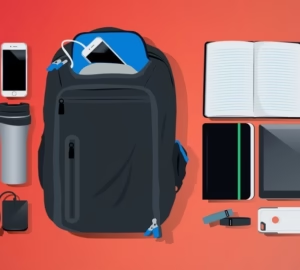You’ve just made a significant purchase – perhaps a new smartphone, a sleek laptop, a essential kitchen appliance, or even a vehicle. As you finalize the payment, the retailer’s salesperson almost invariably asks, “Would you like to add an extended warranty for extra peace of mind?” This offer can be tempting, promising protection against unforeseen breakdowns and costly repairs. But for Kenyan consumers, is an extended warranty a smart investment or an unnecessary expense?
At Retail Place, we believe in empowering you with unbiased information to make the best financial decisions. This article takes an honest, comprehensive look at extended warranties, examining their pros, cons, and the critical factors you need to consider before saying “yes” in the Kenyan market.
Understanding the Basics: Manufacturer’s vs. Extended Warranties
Before delving into the “worth it” question, it’s crucial to distinguish between the two types of warranties:
- Manufacturer’s Warranty (Standard/Factory Warranty): This is the basic warranty that comes with almost every new product. It’s provided by the manufacturer and covers defects in materials and workmanship for a specific period (e.g., 1 year for electronics, 3 years for some vehicles). In Kenya, the Consumer Protection Act, 2012, ensures that goods sold must be of reasonable quality and fit for purpose, providing a legal basis for seeking remedies (repair, replacement, refund) for faulty products within a reasonable timeframe, even without an explicit warranty card.
- Extended Warranty (Service Contract): This is an additional agreement you purchase, typically from the retailer or a third-party company, to extend the coverage beyond the manufacturer’s warranty period. It’s essentially an insurance policy against future repairs.
The Allure of Extended Warranties: The “Peace of Mind” Factor
Retailers often push extended warranties because they are highly profitable. For consumers, the appeal is clear:
- Peace of Mind: The primary selling point. Knowing you’re covered for unexpected, potentially expensive repairs can alleviate financial stress. For a KES 50,000 laptop, a KES 20,000 screen repair (which can exceed the cost of some extended warranties) would be a significant unexpected expense.
- Budgeting Predictability: Instead of facing a sudden large repair bill, you pay a fixed, upfront cost for the warranty.
- Convenience: Some extended warranties offer benefits like direct service, roadside assistance (for vehicles), or even replacement services rather than just repairs.
- High Repair Costs: For certain items like high-end electronics (e.g., Apple MacBooks) or complex car components, repair costs can be substantial. Laptop screen repairs in Kenya can range from KES 6,000 to KES 80,000, and motherboard repairs from KES 3,500 to KES 30,000. For such items, the perceived value of an extended warranty might increase.
The Honest Look: Why Extended Warranties Might NOT Be Worth It
Despite the appealing promises, extended warranties often fall short for the average consumer:
- High Profit Margins for Sellers: A significant portion of what you pay for an extended warranty goes directly into the retailer’s or warranty provider’s pocket as profit. They wouldn’t push them so hard if they weren’t lucrative.
- Product Reliability: Most modern electronics and appliances are quite reliable, especially within the first few years. Many products (especially those with a standard 1-year warranty) are designed to outlast this initial period without issues. Failure rates for many consumer electronics are relatively low during the typical extended warranty period.
- Overlap with Manufacturer’s Warranty: For a period, your extended warranty might overlap with the manufacturer’s warranty, meaning you’re paying for redundant coverage. Carlcare, for example, offers extended warranties for Infinix, TECNO, and itel phones after the initial warranty, but some terms might still have overlaps depending on when you purchase.
- Exclusions and Loopholes: Read the fine print! Extended warranties often have numerous exclusions. They might not cover accidental damage, normal wear and tear, cosmetic issues, or problems caused by user misuse. Some policies have high deductibles or limits on the total cost of repairs. For instance, if an appliance breaks down due to voltage fluctuations (common in some parts of Kenya), the warranty might deem it an “external cause” and refuse coverage.
- Difficulty in Claiming: Some warranty providers are notoriously difficult to deal with. Claiming can involve lengthy approval processes, multiple inspections, and arguments over what constitutes a “covered” repair.
- “Self-Insure” Alternative: For many, putting the money you’d spend on an extended warranty into a separate “repair fund” or savings account is a more financially sound strategy. This way, if a repair does come up, the money is available, and if it doesn’t, you keep your cash.
- Consumer Protection Laws in Kenya: Remember, the Consumer Protection Act, 2012, mandates that products must be of “reasonable quality.” If a brand new item fails prematurely due to a manufacturing defect, even outside its specific warranty period but within a “reasonable” time frame for that product’s expected lifespan, you might still have recourse through the Competition Authority of Kenya (CAK). This provides a baseline protection that can sometimes render an extended warranty redundant for inherent defects.
When Might an Extended Warranty Be Worth Considering in Kenya?
While often a gamble, there are specific scenarios where an extended warranty might offer genuine value:
- Very Expensive or Complex Items with Known Failure Rates:
- High-End Appliances: Washing machines, large refrigerators, smart TVs. If a major component fails, repairs can be costly. Research specific model reliability.
- High-End Laptops/Gaming PCs: These often have expensive components like motherboards or specialized screens.
- Certain Vehicle Types: If you’re buying a used car known for specific, expensive mechanical issues after its manufacturer’s warranty expires, an extended auto warranty (from a reputable provider, not just any dealer add-on) might be considered.
- Products Essential for Your Livelihood: If a piece of equipment is critical for your income (e.g., a professional camera for a photographer, a specialized printer for a business), minimizing downtime and repair costs becomes paramount.
- Lack of Emergency Savings: If you genuinely cannot afford an unexpected, large repair bill (e.g., KES 30,000 for a laptop screen), an extended warranty acts as a financial safety net. However, building an emergency fund is a better long-term solution.
- Reputation of the Manufacturer/Brand: Some brands are known for excellent reliability and strong manufacturer warranties, making extended ones unnecessary. Others might have a history of issues where an extended warranty could provide genuine comfort. Research the specific brand’s reputation for the product you are buying.
- Carlcare’s Extended Warranty for Phones: For brands like TECNO, Infinix, and itel, Carlcare offers specific extended warranty services (e.g., “365 Days Extended Warranty Service”). This might be worth considering if you heavily rely on your smartphone and want an official channel for post-warranty repairs, especially given the prevalence of these brands in Kenya.
Smart Questions to Ask Before Buying an Extended Warranty in Kenya:
Before you sign on the dotted line, ask the salesperson (and yourself) these critical questions:
- What does the manufacturer’s warranty already cover, and for how long? (Don’t pay for duplicate coverage).
- What exactly does the extended warranty cover, and what are the explicit exclusions? (Get it in writing!).
- What is the deductible per claim?
- Is it a repair or replacement policy? (Some just repair, others replace if unrepairable).
- Who is the warranty provider? (Is it the retailer, the manufacturer, or a third-party? Research their reputation for claims).
- Where do I take the item for service/repair? (Is there an authorized service center conveniently located for you in Kenya?).
- What is the claims process? (How easy or difficult is it?).
- Can I cancel the warranty for a prorated refund if I change my mind?
- What is the total cost of the warranty, and how does it compare to the typical repair costs for this item? (Research average repair costs in Kenya for similar items).
The Retail Place Recommendation: Self-Insure First
For most consumers in Kenya, our honest recommendation is this:
- Rely on the manufacturer’s warranty and your consumer rights first.
- Build an emergency fund dedicated to unexpected repairs or replacements. This money is always yours, whether you need a repair or not.
- Research product reliability meticulously before purchase.
- For very high-value, essential items with known high repair costs, and only after carefully reading the fine print and confirming the provider’s reputation for easy claims, consider an extended warranty as a last resort or if you genuinely cannot afford unexpected large expenses.
Don’t let the fear of a future breakdown push you into an expensive decision you might regret. Be an informed consumer, protect your finances, and make choices that truly offer value, not just “peace of mind” at a premium.









